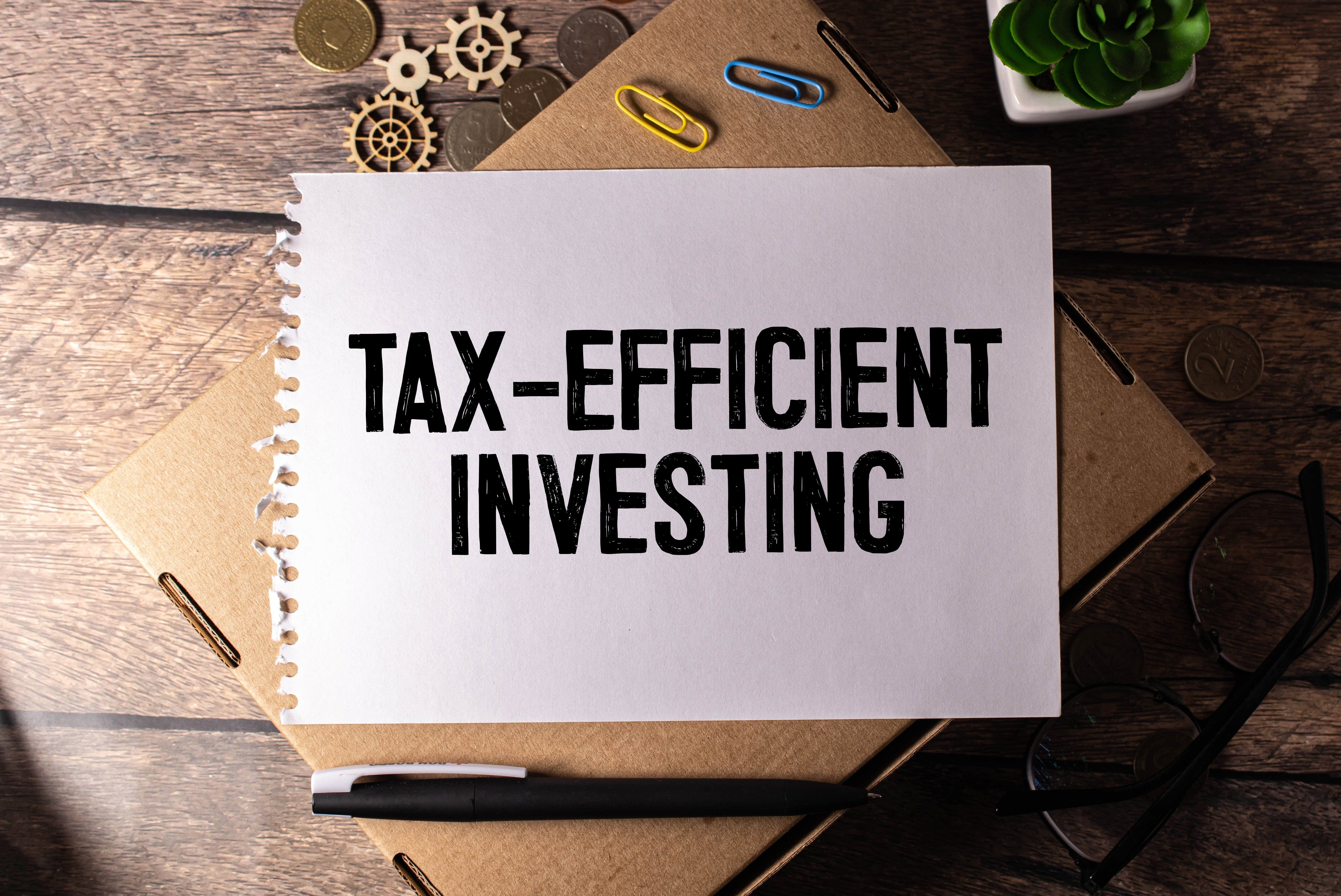Understanding Tax Efficiency: The Key to Maximizing Returns
Tax efficiency in investing refers to minimizing tax liabilities to maximize returns. This involves strategically planning and managing investments to reduce the taxes owed on gains.
Understanding the intricacies of tax laws and how different types of investments are taxed can help investors make more informed decisions. By optimizing tax efficiency, investors can significantly improve their overall financial outcomes.
Tax-Advantaged Accounts
Tax-advantaged accounts, such as Individual Retirement Accounts (IRAs) and 401(k)s, offer significant tax benefits that can enhance the growth of your investments. Contributions to these accounts may be tax-deductible, and their investments grow tax-deferred or tax-free.
Utilizing these accounts effectively can provide a powerful boost to your investment strategy. Understanding the rules and limitations of each type of account is crucial to maximizing their benefits.
Strategies to Optimize Tax Efficiency in Your Portfolio
Several strategies exist for optimizing tax efficiency, in addition to types of accounts. One common approach is tax-loss harvesting, where investors sell losing investments to offset gains from winning investments, thereby reducing taxable income.
Another strategy is asset location, which involves placing investments in different types of accounts based on their tax treatment. For example, placing high-growth stocks in tax-advantaged accounts and bonds in taxable accounts can help minimize tax liabilities.
Common Mistakes Investors Makes with Tax Planning
One common mistake is failing to consider the tax implications of investment decisions. This can lead to unexpected tax bills that erode investment returns.
Another mistake is not taking advantage of tax-advantaged accounts or fully understanding the associated rules. Proper planning and regular review of your investment strategy can help avoid these pitfalls.
Real Life Example
A married couple was looking to invest $400,000 in alternative assets such as private credit and private real estate. The available cash was only in their taxable trust account, while their retirement accounts were already allocated to U.S. stock funds. To meet their goal, we suggested the following strategy:
-
-
-
-
-
-
-
-
- Invest the $400,000 in the trust account’s tax-efficient equity solution, such as NorthCoast’s Large-Cap Core individual stock strategy.
-
-
-
-
-
-
-
- Sell $400,000 of a stock fund in their 401(k), roll it over into an IRA, use those funds to invest in private credit and real estate in a tax-sheltered account.
This restructuring yielded substantial tax savings:
- Over $115,000 in dividends from private credit was sheltered from taxes in the IRA.
- The direct indexing strategy generated nearly $95,000 in capital losses through tax-loss harvesting, while achieving an average growth rate of about 9%.
Overall, these steps saved the client about $42,000 in taxes on dividends and another $22,000 on capital gains.
The Evolving Landscape of Tax-Efficient Investing
The landscape of tax-efficient investing is constantly evolving, with changes in tax laws and new investment products emerging regularly. Staying informed about these changes is crucial for maintaining a tax-efficient portfolio.
Emerging trends such as the increasing use of technology in tax planning and the growing popularity of sustainable investing are shaping the future of tax-efficient investing. Keeping an eye on these trends can help investors stay ahead of the curve.
Every investor’s situation is unique, but tax efficiency is crucial in maximizing portfolio returns. If this resonates with you, we invite you to connect with our team to explore how we can help optimize your investment strategy while minimizing your tax liabilities.
NorthCoast Asset Management is a d/b/a of, and investment advisory services are offered through, Kovitz Investment Group Partners, LLC (Kovitz), an investment adviser registered with the United States Securities and Exchange Commission (SEC). Registration with the SEC or any state securities authority does not imply a certain level of skill or training. More information about Kovitz can be found at www.kovitz.com.
NorthCoast and its affiliates do not provide tax, legal or accounting advice. This material has been prepared for informational purposes only, and is not intended to provide, and should not be relied on for, tax, legal or accounting advice. You should consult your own tax, legal and accounting advisors before engaging in any transaction.
The information contained herein has been prepared by NorthCoast Asset Management ("NorthCoast") on the basis of publicly available information, internally developed data and other third party sources believed to be reliable. NorthCoast has not sought to independently verify information obtained from public and third party sources and makes no representations or warranties as to accuracy, completeness or reliability of such information. All opinions and views constitute judgments as of the date of writing without regard to the date on which the reader may receive or access the information, and are subject to change at any time without notice and with no obligation to update. This material is for informational and illustrative purposes only and is intended solely for the information of those to whom it is distributed by NorthCoast. No part of this material may be reproduced or retransmitted in any manner without the prior written permission of NorthCoast. NorthCoast does not represent, warrant or guarantee that this information is suitable for any investment purpose and it should not be used as a basis for investment decisions. © 2024 NorthCoast Asset Management.
PAST PERFORMANCE DOES NOT GUARANTEE OR INDICATE FUTURE RESULTS.
This material should not be viewed as a current or past recommendation or a solicitation of an offer to buy or sell any securities or investment products or to adopt any investment strategy. The reader should not assume that any investments in companies, securities, sectors, strategies and/or markets identified or described herein were or will be profitable and no representation is made that any investor will or is likely to achieve results comparable to those shown or will make any profit or will be able to avoid incurring substantial losses. Performance differences for certain investors may occur due to various factors, including timing of investment. Investment return will fluctuate and may be volatile, especially over short time horizons.
INVESTING ENTAILS RISKS, INCLUDING POSSIBLE LOSS OF SOME OR ALL OF THE INVESTOR'S PRINCIPAL.
The investment views and market opinions/analyses expressed herein may not reflect those of NorthCoast as a whole and different views may be expressed based on different investment styles, objectives, views or philosophies. To the extent that these materials contain statements about the future, such statements are forward looking and subject to a number of risks and uncertainties.




-1-1.jpg)

